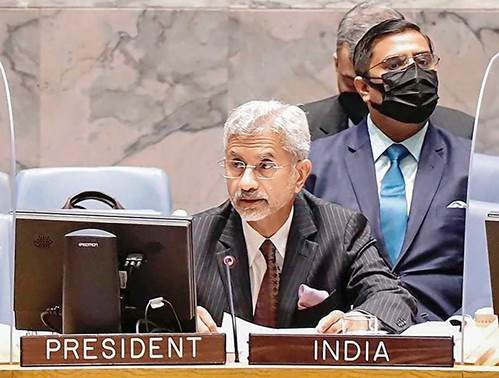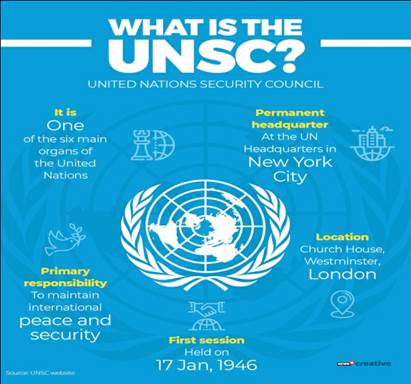Free Courses Sale ends Soon, Get It Now


Free Courses Sale ends Soon, Get It Now



Copyright infringement is not intended
Context: In a first, India will host diplomats and officials from all 15 countries of the United Nations Security Council, including China, Russia and the U.S., for a special meeting on terrorism, in Delhi and Mumbai in October.
Details:
New challenges

India at UNSC:
Composition of UN Security Council:
The UN Security Council is composed of
How does presidency of UNSC rotate?
Powers of the UNSC President:
Responsibilities of the UNSC president include:
Veto power of UNSC member states:
https://epaper.thehindu.com/Home/ShareArticle?OrgId=GCGA40O9I.1&imageview=0
© 2024 iasgyan. All right reserved